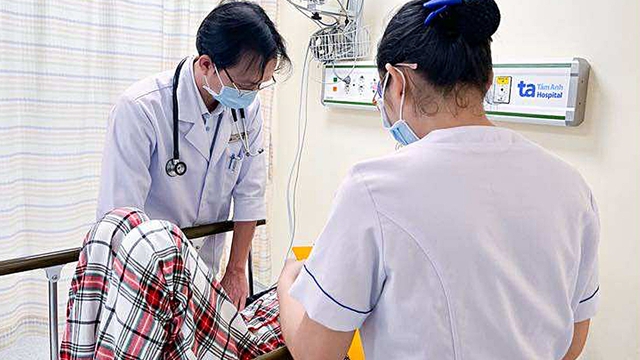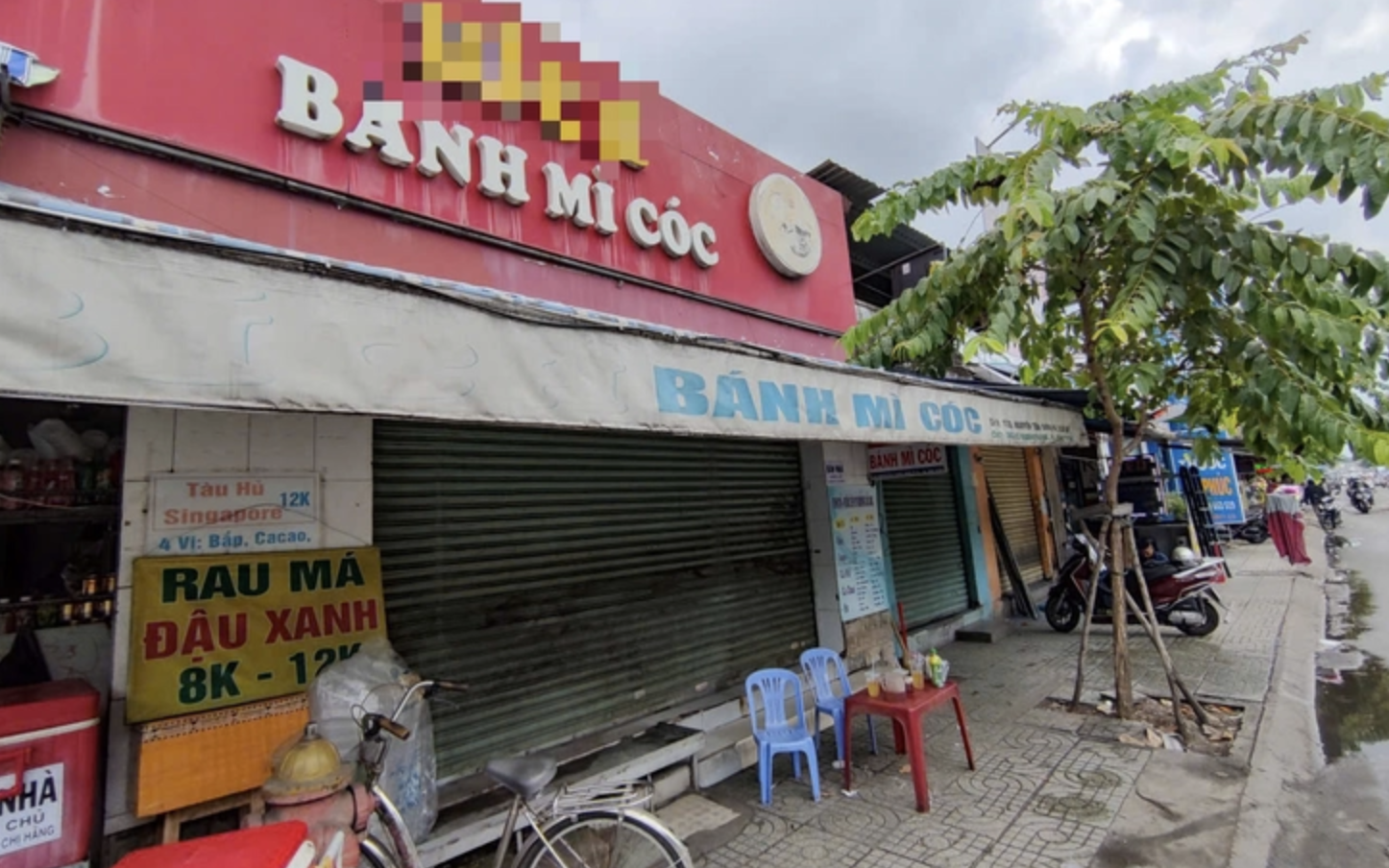
A doctor and a nurse treat a patient hospitalized with diarrhea and vomiting after eating 'banh mi' in Ho Chi Minh City, November 7, 2025. Photo courtesy of the hospital.
More than 170 people fell ill this month after eating 'banh mi' from two outlets of Co B. 'banh mi' brand, a 30-year-old establishment trusted by local residents in Ho Chi Minh City.
Health inspectors confirmed the shops had business licenses, food safety certificates, and properly-documented ingredients, but the cause of the outbreak is still under investigation.
Experts said even reputable, high-volume suppliers remain vulnerable to contamination.
"Food poisoning can arise from poor hygiene, contaminated ingredients, or unsafe handling," said Associate Professor Nguyen Duy Thinh, a food technology specialist.
"When large quantities are distributed, a single lapse can affect hundreds, underscoring weaknesses in monitoring and oversight."
Past outbreaks reinforce the risk.
In September 2023, nearly 150 people were hospitalized after consuming 'banh mi' at the famed Phuong 'banh mi' shop in Hoi An, and in May 2024, over 500 people were sickened in Dong Nai Province after eating 'banh mi' from an uncertified supplier.
Authorities noted that preliminary tests from the latest outbreak in Ho Chi Minh City indicate salmonella contamination, a common foodborne pathogen found in meat and eggs.
Health officials have urged stricter inspections, better hygiene training, and tougher penalties for violations, particularly at establishments serving large numbers of meals.
"Large-scale food suppliers must be closely monitored to prevent outbreaks that could endanger public health," said Dr. Nguyen Thanh Sang, director of Thu Duc Regional Medical Center.
The incidents serve as a warning about the challenges of ensuring food safety at businesses with high-volume operations, even those with long-standing reputations.



Max: 1500 characters
There are no comments yet. Be the first to comment.